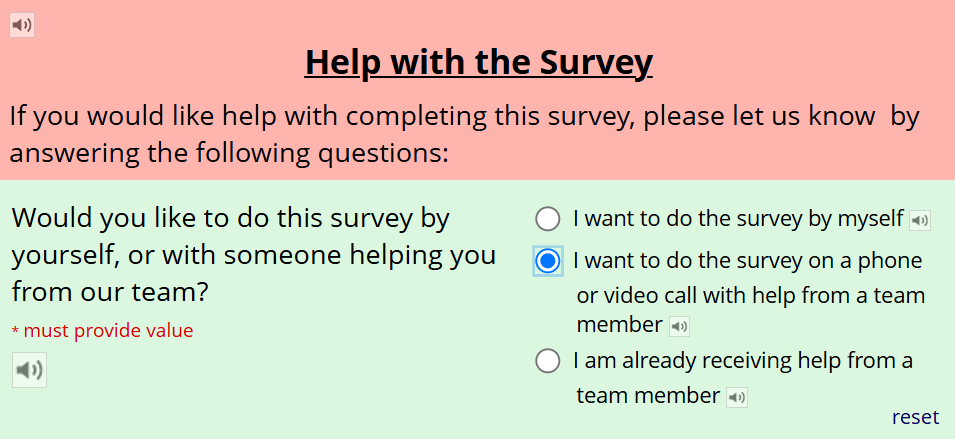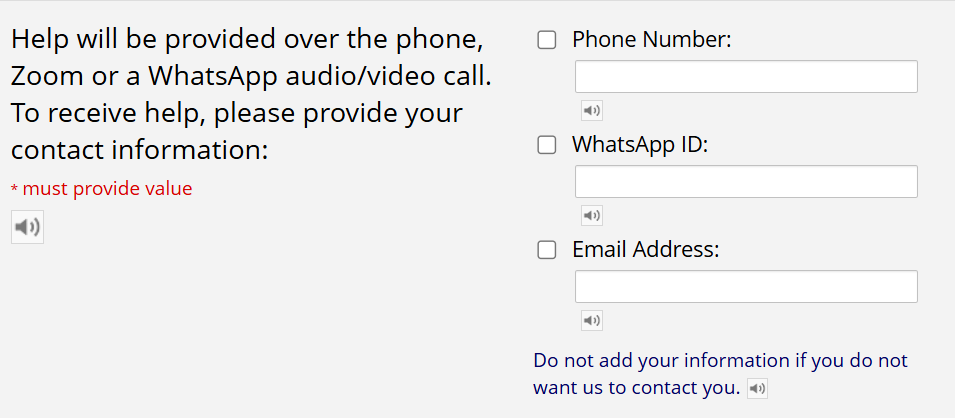Chapter 3: Data Collection and Storage
Module 9: Support for Participants
The best way to make a participant feel comfortable is to give lots of support! This module will share the importance of accessibility and technology support, gauging levels of support and demonstrating useful types of support.
Learning Objectives
- Discover ways to provide technology and study-related support in online research
- Determine when additional wellbeing-related support is needed for participants
Case Study
Logan is a university student recently recruited to participate in a research project about sexual abuse. As he is working through the questionnaire, he begins to feel distressed. Luckily, the research team had implemented a support button that participants may press if they’re feeling unsettled. When Logan clicks the button, he is redirected to an automated message saying, “You’ve got this! Your contributions will make a difference!”
Accessibility & Technology Support
Technology is one of the world’s most useful inventions, but it can often be incredibly difficult to navigate for certain users. Recall our discussion of the digital divide, where there are gaps in digital literacy and digital access for many communities. In order to conduct online research, it is important to create resources and modes of communication for participants to receive help with navigating the required research activities.
Below is an example of a survey which offered to support participants while completing the survey. Participants needed to provide contact information for this support which may be a privacy concern. However, this method allowed the research team to reach out individually and provide direct, 1-on-1 help with participating.


Support for Reporting, Safety & Wellbeing
When conducting research with structurally and systemically vulnerable groups, we as researchers and community members have an ethical and moral obligation to ensure the safety of participants to the full extent of our abilities.
Letters of information and other documents of consent typically require researchers to list relevant crisis lines and places to call for support in case of distress. This is a great way to provide initial support.
However, in crisis, trauma- and violence-informed research, additional supports are really valuable to ensure the safety of participants. Ways of providing additional support can be as simple as having a partnership with a relevant crisis support center in your area, and providing direct referrals for participants. This may pose issues of privacy, however there are many work-arounds in certain survey software.
For example, using REDCap, the built-in alert system can send automated messages to a crisis organization, containing participant contact information. This can be done without the researcher team ever viewing the responses or contact information.
Trauma and violence-informed research may resemble research about or with communities who have experienced various types of violence and abuse (such as gender-based violence, intimate partner violence, etc.), natural disasters, emergency situations, and other crises.
As an additional resource, we recommend consulting this “Guidance for researchers
conducting trauma- and violence-informed community-based research” provided by the University of Western Ontario.
- Straatman, A.L., Baker, L. (2022). Guidance for researchers conducting trauma- and violence-informed community-based research during a pandemic, natural disaster, crisis, or other emergency situation. London, ON: Knowledge Hub. Centre for Research & Education on Violence against Women & Children, Western University.
ISBN: 978-1-988412-59-7
www.kh-cdc.ca


Feedback/Errata